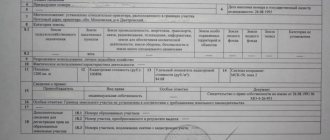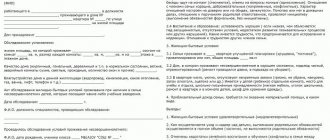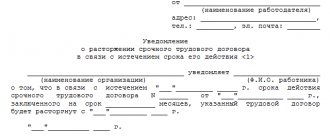Who is eligible to attend?
The interrogation is carried out by investigative authorities in order to obtain oral information about the offense committed. Correctly constructing a conversation with a witness is not an easy task. The situation becomes more complicated if a minor citizen is interrogated. Children remember vivid details and moments well, but are not always able to verbalize information.
The basic rules for conducting interrogation at different stages of the investigation are explained in the Criminal Procedure Code of Russia:
- Art. 191 of the Code of Criminal Procedure of the Russian Federation - preliminary investigation;
- Art. 280 of the Code of Criminal Procedure of the Russian Federation - during a court hearing;
- Art. 425 of the Code of Criminal Procedure of the Russian Federation - interrogation of the accused, suspect.
An important condition is that the minor is summoned to the investigator through the child’s legal representatives, the list of which is contained in Article 5 of the Code of Criminal Procedure of the Russian Federation : parents; guardians (trustees); adoptive parents; orphanage administration. Representatives independently decide whether they will be present at the inquiry procedure.
When issuing a summons to appear, the investigator needs to analyze the advisability of inviting a specific legal representative. If there is a possibility that the actions of an adult infringe on the rights of a teenager, then a decision is made to replace the representative. What factors are considered:
- suspicion that the parents will persuade the child to give false testimony;
- victims of a sexual crime are ashamed to describe the details of what happened in front of their relatives;
- the presence of a loved one embarrasses the child, he is distracted, constantly waiting for the adult’s reaction to his words;
- the parents are suspected of abusing a minor or committing sexual molestation.
A teacher or psychologist must be present during the interrogation of a child under 14 years of age. If the teenager is between 14 and 18 years old, then a specialist is invited at the discretion of the investigator or judge. The exception is the psychological state of the person being interrogated: if a child suffers from a mental disorder or is developmentally delayed, then the presence of a psychologist is mandatory for any age.
How can a specialist help during interrogation? First of all, it is designed to establish contact with the teenager, as well as to suppress possible psychological pressure from the investigator or relatives. In addition, teachers provide consulting services regarding communication with minors in cases of sexual molestation.
The investigation may face the fact that the child lives independently, and his parents are deprived of parental rights. In this case, a representative of the local guardianship council must be invited to the interrogation. The inspector is obliged to ensure that the teenager’s rights are strictly observed.
Receiving a call
It is prohibited to hand over a summons to appear for questioning to a teenager in person. His legal representatives or the administration of the institution where the child is being raised have the right to receive a summons.
The summons is addressed to the legal representative, while indicating the name of the minor. In exceptional situations, when a case of child abuse has been opened and it is undesirable to notify the parent, the summons is served on another person. For example, a grandmother or a teacher.
If a teenager is suspected of committing a crime and is taken into custody, a summons for questioning is sent to the head of the pre-trial detention center. Parents receive a separate summons indicating the place and time of the inquiry. They have the right to appear in the investigator's office to attend the procedure.
Summons for interrogation
When a minor citizen takes part in investigative actions, then he will be invited to interrogation through a legal representative. Therefore, the summons is sent to the parents: the order will indicate the first and last names of the parents, as well as the first and last names of the child. Sometimes a summons is sent to the director of the educational institution where the child is studying, and this is acceptable.
Important! If the minor witness or accused is an orphan and studying in a boarding school, then a representative of the educational institution will also be summoned for questioning.
The role of legal representative is:
- the child's natural parents;
- foster parents who adopted a teenager;
- guardians;
- trustees;
- representatives of the institutions where the child is studying (orphanage workers).
You might be interested in:
Criminal law
Exemption from criminal liability under Article 286 of the Criminal Code in connection with reconciliation
Read more
Criminal law
The Supreme Court clarified what is meant by “sincere repentance”
Read more
Criminal law
The procedure for granting visits in a pre-trial detention center is illegal!
Read more
Criminal law
The essence of house arrest
Read more
Criminal law
If they extort money
Read more
Criminal law
The heat of passion
Read more
In practice, situations often occur when a child does not study in any educational institution, and his parents have been deprived of parental rights. As a result, there is no adult who could represent the interests of the minor. In this case, when the investigator asks the child questions, guardianship or guardianship authorities may be present.
Sometimes a subpoena may be sent not to the parents , but to the grandparents, teachers, or sports coaches. This happens in a situation where the parent should not know about the case (for example, the parent is a suspect in the case or negatively influences the upbringing of the teenager) (Chapter 11 of the code).
There are also other “extra” situations when a child can be summoned for questioning without first informing the legal representative: if an 18-year-old child has already been chosen as a preventive measure in the form of staying in a pre-trial detention center. In this case, the procedure is as follows:
- parents receive a subpoena requesting their personal presence during the interrogation;
- The head of the pre-trial detention center receives a document demanding that the arrested person be taken to the interrogation room. Such a subject must also be provided with legal protection in the person of a lawyer. (Our juvenile mediator lawyer is ideal for such actions)
Location
Art. 187 of the Code of Criminal Procedure of the Russian Federation says that the inquiry is carried out at the place of the preliminary investigation or at the location of the witness. It is advisable to conduct a conversation with a child in a familiar environment. For example, in a school office or at home. In a familiar environment, children feel much more comfortable and make contact better.
Minors 14-18 years old are called into the investigator’s office, because in this way the importance of the procedure is emphasized. An official setting encourages a teenager to give truthful information.
Duration of interrogation
The law does not stipulate the question of at what age it is permitted to involve children in investigations. Of course, if a witness or victim is a child who has not yet learned to speak, then there can be no question of interrogation. Regarding children 3-4 years old, the investigator makes a decision individually. Basically, authorized bodies try to find older witnesses to a crime.
The carrying out of investigative actions cannot exceed:
- if the child is under 7 years old - half an hour without a break;
- from 7 to 14 years - 1 hour without a break, total time - 2 hours a day;
- from 14 to 16 years old - 2 hours without a break, total time - 4 hours a day.
The interrogation must be carried out “hot on the heels”, because children are very impressionable. New events quickly overshadow everything experienced before. Especially if the incident did not cause a sharp outburst of emotions in the child. The investigator, sometimes with the help of a psychologist, draws up a conversation plan and formulates unambiguous, understandable questions.
Interrogation of minor children in court
During the trial, the court must re-interrogate the teenager, without relying on the information that was obtained as a result of the investigation (along with the video recording obtained).
Depending on the situation, the court has the right to determine the obligation for the personal presence of the child and his parents at the meeting (or some meetings) in order to ask them certain questions or know their opinion on certain facts.
The questioning of a witness or victim in court who is over 14 years old must be done extremely delicately. After all, we are talking about an official setting, a huge number of people, the personal presence of the defendant, who can also ask questions. Therefore, all questions are asked in a calm tone, without any moral pressure on the child , otherwise he will become withdrawn.
It is considered acceptable to interrogate a minor via video link from a neighboring room or building. This method is aimed at “relaxing” the minor victim in order to obtain more objective testimony.
As for the duration of the judicial interrogation, the norms specified in the pre-trial procedure are taken into account (up to 2 hours). But remember that the duration of the break is not established by the legislator and, if necessary, be sure to use it.
Conducting an interrogation
Investigative actions begin with the investigator drawing up a resolution indicating the circumstances of the crime and the status of the child. For example, a victim in a criminal case. At the same time, a decision is made to appoint a legal representative who will accompany the minor during all investigative activities.
Interrogating a teenager is no different from a similar procedure with adults. The only peculiarity is that children under 16 years of age are not warned about liability for giving false information, as well as for refusing to testify ( Part 2 of Article 191 of the Code of Criminal Procedure of the Russian Federation ). The investigator simply points out the need to tell the truth.
Procedure for conducting an inquiry:
- clarification of the rights of the person being interrogated;
- recording the data of those present in the protocol;
- the minor tells his vision of events;
- the investigator asks questions;
- the interrogation participants sign the protocol (if the child is very young, then the signature of his legal representative is sufficient).
The law obliges investigators to videotape the interrogation. Subsequently, the video materials are added to the case materials. It will be possible to resort to them during further proceedings in court. However, the child himself or his legal representative has the right to refuse video recording of the inquiry. This must be noted in the protocol.
Interrogation of a minor accused
An accused person who is under 18 years of age has the legal right to be questioned in the presence of his legal representative. The representative has the following rights:
- Know what crime the child is accused of committing. The investigator must indicate the article number and the essence of the crime.
- Be present in person while the investigator files charges against the minor. This is a procedure upon completion of which the suspect receives a new status - an accused in the case.
- Accompany the minor accused during all interrogations, personally familiarize yourself with the compiled protocol, and report in writing or orally about the incorrectly drawn up protocol.
- Write a complaint about the actions of the investigator towards the child.
- Enter into an agreement with our lawyer in the interests of the minor.
The admission of a legal representative is also issued in the form of permission from the investigator. If a parent negatively influences a child, the investigator has the right to call another representative who can simultaneously serve as the main defender. In this case, the defender enjoys all the rights that a lawyer has.
The procedure for interrogating a minor accused is carried out as follows:
- The investigator tells everyone present (parents, lawyer, psychologist, teacher and child) in detail why he gathered each of the invited participants.
- Each participant will be told about his rights and responsibilities.
- The attitude towards the specified charge is noted - whether the accused “admits” or “does not admit” his guilt. All explanations will be recorded in the protocol by hand or in printed form, after which all participants will sign.
- All possible comments will be indicated in the protocol. The child and the representative write the phrase “It was written down correctly from my words, it was read by me.”
- How many violations will be indicated by the investigation depends on the professionalism of the lawyer. We remember that if “violations” are not indicated, it means they didn’t happen!
Repeated interrogation of the suspect is possible provided that he himself or his representative has filed a corresponding petition.
Expert opinion
Anton Dolgov
Lawyer, member of the Disciplinary Chamber of the Mykolaiv Region Bar Association
Persons who have the right to take part in interrogation are clearly regulated by law. Therefore, the investigator or prosecutor has the right to refuse the applicant to be present during the interrogation, even if he was the initiator of this. We advise young lawyers to analyze Part 6 of Art. 223 and part 1 of Art. 226 CCP of Ukraine.
There are situations when, at the time the case was initiated, the suspect was a minor, and when the case was sent to court, he turns 18 years old.
Then all the interrogation rules that apply to adults will be used, so the presence of teachers and psychologists is considered optional. An exception to the rule may be the defendant’s low level of education or certain psychological characteristics.
It is also worth remembering that the above-mentioned interrogation procedure, provided for in Art. 226 Code of Criminal Procedure.
Confidentiality of information
The Criminal Code of the Russian Federation prohibits the dissemination of information about children who have suffered as a result of a crime. The ban applies to any information: personal data, photographs, video materials, voice recordings. It is especially important to maintain confidentiality when a minor has been the victim of sexual assault. By introducing such restrictions, legislators pursued one goal - to protect the child from attacks from the environment and ridicule of peers.
Failure to comply with the ban entails serious consequences: from a fine (150-350 thousand rubles) to imprisonment for a period of 5 years. According to Part 3 of Article 137 of the Criminal Code of the Russian Federation, public speaking or publication of facts in the media can serve as illegal dissemination of information.
Interrogation in a criminal case
The law allows not to re-examine a minor witness. Basically, judges conduct proceedings based on materials collected by the investigator. Such norms are completely justified: in the courtroom, in addition to many strangers, there is a defendant.
If the court decides to re-interrogate, then the attendance of the child’s legal representative at the hearing is mandatory. Adult participants in the process must create a calm environment. The duration of the process does not exceed the time established by Art. 191 Code of Criminal Procedure of the Russian Federation . Usually the judge allows no more than an hour for interrogation, so as not to cause psychological trauma to the child.
Basic moments:
- A psychologist is invited to the meeting if the person being interrogated is under 14 years old or suffers from a psychological disorder;
- the psychologist has the right to ask questions adapted to the age and condition of the child;
- a teenager over 16 years of age is explained his responsibility for giving false information or concealing facts.
The court has the right to remove the defendant from the courtroom during the investigation. Such a measure is formalized by an appropriate resolution indicating the reason for removal: the psychological state of the child, violence committed in the past. The bailiffs return the defendant to the hearing as soon as the interrogated person leaves the courtroom.
Interrogation in a civil case
The conversation is conducted with the child not only about criminal offenses. Often the child's opinion is important in civil proceedings. The legislation does not limit the age of children interrogated. But judges involve minor witnesses, mainly in cases of a family nature: deprivation of parental rights, adoption, living with one of the parents after a divorce. But even in such situations, they try to use other evidence.
Basic moments:
- A conversation with a minor under 14 years of age must be carried out in the presence of a teacher or educator ( Article 25.6 of the Code of Administrative Offenses of the Russian Federation ). The specialist must have teaching experience and education. The teacher monitors the child’s condition during the interrogation, adapts questions to his perception, and explains the characteristics of his behavior.
- Questions and answers must be included in the minutes.
- Any of the participants may be removed by the court during the interrogation.
Children under 16 years of age have the right to leave the court hearing after the end of the interrogation. Of course, accompanied by a legal representative. In rare cases, it may be necessary to clarify some details, then the minor remains in the courtroom until the end of the process.
Main conclusions
- The role of a witness is a person who has some information about what happened and can convey it in detail to the investigation.
- The interrogation of a minor in court and in the investigator's office can last no more than 2 hours a day. There is a mandatory break after every hour.
- The interrogation of a minor witness, victim or suspect is carried out in the presence of a psychologist, teacher or legal representative.
- It is necessary to invite a child for questioning only if it is impossible to find out all the circumstances of the case without obtaining information that the child has.
- Before starting the interrogation, the investigator must explain the reason for the meeting to the teenager and his legal representative, and indicate their rights and responsibilities.
During the judicial interrogation of a child, the judge has the right to ask the defendant to temporarily leave the courtroom if his presence disrupts the calm atmosphere for the minor witness or victim.










